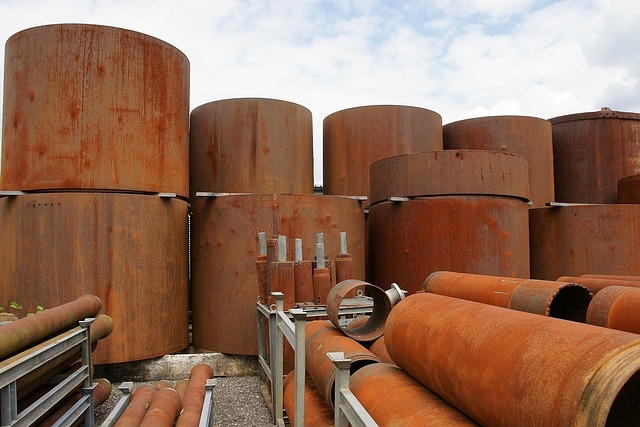Industrial Piping Materials

Industrial Piping Materials
- Industrial piping systems are crucial in various sectors, including oil and gas, chemical processing, power plants, water treatment, and manufacturing.
- Selecting the right piping material is essential to ensure durability, efficiency, safety, and cost-effectiveness.
- In this article we explore the different types of industrial piping materials, their properties, and their applications.
Codes Used
- The two principal international codes used for the design and construction of a process plant are
- ASME B31.3, Process Piping, and the ASME Boiler
- Pressure Vessel Code Sections
- Generally, only materials recognized by the American Society of Mechanical Engineers (ASME) can be used as the materials of construction (MoC) for piping systems within process plants
- They meet the requirements set out by a recognized materials testing body, like the American Society of Testing and Materials (ASTM).
- There are exceptions, however; the client or end-user must be satisfied that the non-ASTM materials offered are equal or superior to the ASTM material specified for the project.
- The Unified Numbering System (UNS) for identifying various alloys is also quoted.
- This is not a specification, but in most cases, it can be cross-referenced to a specific ASTM specification.
Types of Industrial Piping Materials
1. Carbon Steel Pipes
Properties
-
- High strength and durability
- Good resistance to mechanical stress
- Can be welded and fabricated easily
- Susceptible to corrosion unless coated or lined
Applications
-
- Oil and gas industries
- Power plants
- Water transportation
- Structural applications
2. Stainless Steel Pipes
Properties:
-
- Excellent corrosion resistance
- High-temperature resistance
- Hygienic and easy to clean
- Available in different grades (304, 316, etc.)
Applications:
-
- Food and beverage industries
- Pharmaceutical industry
- Chemical processing plants
- Marine applications
3. Alloy Steel Pipes
Properties
-
- Enhanced mechanical properties due to alloying elements (chromium, molybdenum, nickel, etc.)
- Superior resistance to high pressure and temperature
- Good corrosion resistance
Applications
-
- High-pressure steam pipelines
- Heat exchangers
- Power generation plants
- Chemical processing industries
4. Copper Pipes
Properties:
-
- Excellent thermal and electrical conductivity
- Naturally corrosion-resistant
- Antimicrobial properties
- Easy to install and join
Applications:
-
- HVAC systems
- Plumbing applications
- Refrigeration
- Medical gas supply systems
5. Plastic Pipes (PVC, CPVC, HDPE, PPR, PTFE)
Properties:
-
- Lightweight and easy to install
- High resistance to chemical corrosion
- Non-conductive and non-reactive
- Flexible and cost-effective
Applications:
-
- Water and sewage systems
- Chemical transportation
- Electrical conduit systems
- Food processing industries
6. Ductile Iron Pipes
Properties:
-
- High strength and toughness
- Resistance to impact and stress
- Good corrosion resistance with coatings
- Long service life
Applications:
-
- Municipal water supply
- Sewer and drainage systems
- Industrial waste transport
- Fire-fighting pipelines
7. Glass-reinforced plastic (GRP) and Fiberglass Pipes
Properties:
-
- High corrosion resistance
- Lightweight yet strong
- Low maintenance
- Good resistance to high temperatures
Applications:
-
- Chemical industries
- Water treatment plants
- Cooling water pipelines
- Offshore and marine industries

